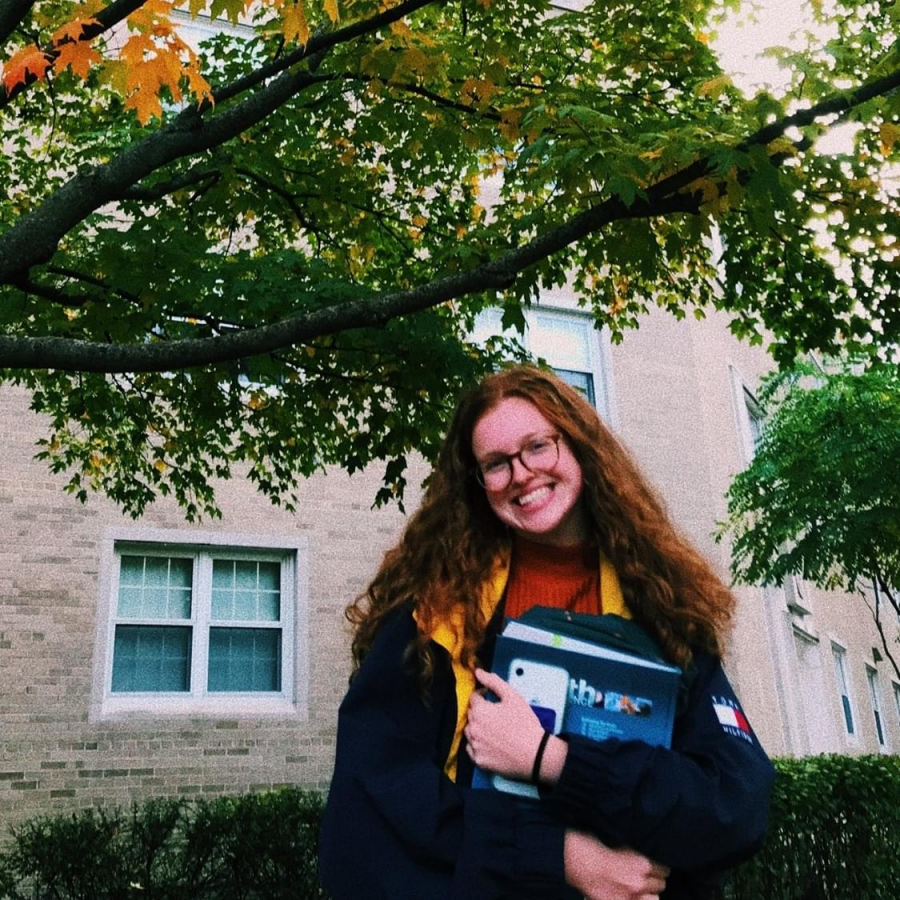Q&A: Weinberg sophomore Erin McCotter on being a public health hotline worker
Erin McCotter works at a public health hotline answering calls from local residents.
June 30, 2020
Weinberg sophomore Erin McCotter volunteers as an intake screener at her local health department in Green Bay, Wisconsin. As an intake screener, she responds to calls made to her local public health hotline. From calls inquiring about the safety of opening up local businesses to calls criticizing her local leadership’s strict COVID-19 related rules, McCotter has heard it all through her work. The Daily sat down with her to discuss her job. The interview has been edited for clarity.
Q: What does your job as an intake screener entail?
A: I am an intake screener at my local health department. I answer the phones when people call in and I can either direct them to someone who knows a lot more about this or, if it’s a simple question, I can answer it for them.
Q: Why did you volunteer for the job?
A: Throughout quarantine, I thought, “I’m at home, there’s nothing to do.” But there’s so many things to do. This seemed like a great way to be involved with my community and make an impact locally. It really helps relieve some of the work that people in the public health department are doing. They’re doing so much, and just not having to answer phones for a few hours is one little thing I can help with.
Q: Have there been times where you were very concerned about a caller?
A: Generally, there are a lot of people who have misinformation about COVID-19, especially when older people are calling in. A lot of them don’t understand the risk factors of going out and having big gatherings. There is definitely a sense that they’re endangering themselves. If someone is very much a concern, I can direct them to the public health nurses.
Q: What has been the greatest challenge so far?
A: The greatest challenge is just understanding that people are coming in with different levels of understanding. People are getting their information from a variety of different sources so not everyone is understanding things in exactly the same way I already understand them. I need to make sure I’m giving people information they need and giving it to them in a way they can comprehend and in a way that is actually going to be applicable to them.
Q: Do you receive any calls that are out of the ordinary?
A: When our local health department tried to make an individual order to have stay-at-home in our county, people weren’t happy about it. That day there were a lot of calls about how our county was being dictatorial and going toward fascism.
Q: How do you deal with those angry callers?
A: We try to listen to people and let them vent their issues because we are there to hear what people have to say and what their concerns are. In some cases, you really just have to sit there and listen and then throw it out.
Q: What has been the best aspect of taking calls from local residents?
A: I just really enjoy it. It’s really interesting to see the different perspectives of people because I only see media representations of what’s happening. It’s enlightening to see what other people are thinking outside of my own home, especially because that’s really where I stay most of the time. It’s easy to make assumptions that everybody understands what’s going on, but seeing how there are a lot of different ideas out there about what’s happening is really impactful.
Email: rebeccaaizin2023@u.northwestern.edu
Twitter: @rebecca_aizin



